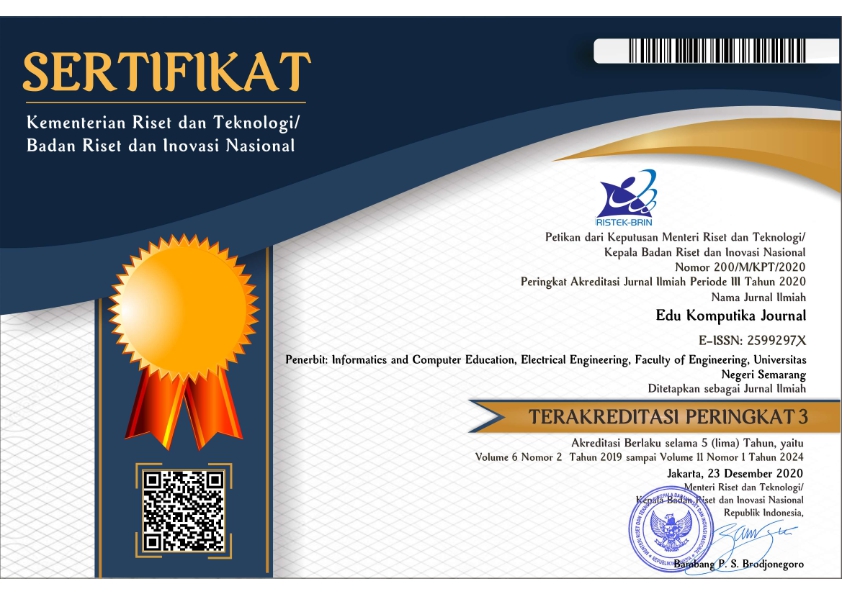Efektivitas Model Pembelajaran Numbered Head Together terhadap Hasil Belajar TIK Siswa SMP N 1 Bulu Sukoharjo
Abstract
The aim of this research is to find out determine the difference in average cognitive learning outcomes and the effectiveness of the learning model Numbered head together,. This type of research is experimental design. The design used in this research is posttest only control group design. The sampling technique used in this research is probability sampling. Population in this research is all tenth grade junior high school 1 Bulu Sukoharjo year 2015/2016. From the results of data analysis, obtained by the analysis results of hypothesis testing independent samples t-test significance value = 0.00 and t = -7.01 and table = -2, 00 with α = 5% by dk = 30 + 30-2 = 58 . Criteria testing is Ha accepted if tcount <ttabel, then thitung is in the region of rejection Ha. Because taccount is in the region of rejection Ha, it shows that there are significant differences in learning outcomes between the experimental class and control class. Z test analysis is used to determine the percentage complete experimental class learning. based on the analysis obtained by zhitung =2,17 ztabel =1,64. Testing criteria is if zhitung> ztabel then Ho is rejected and Ha accepted. Based on data analysis can be concluded that there are differences in average outcomes between classroom learning by learning Numbered head together and classroom learning by lecture and Learning model Numbered Head Together effective in ICT learning.
















